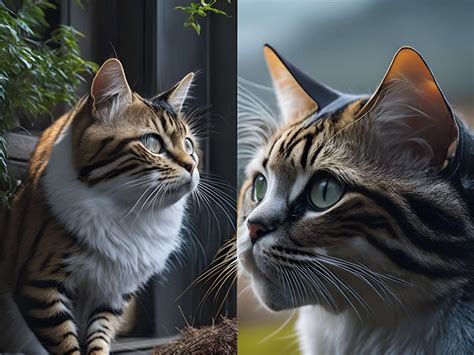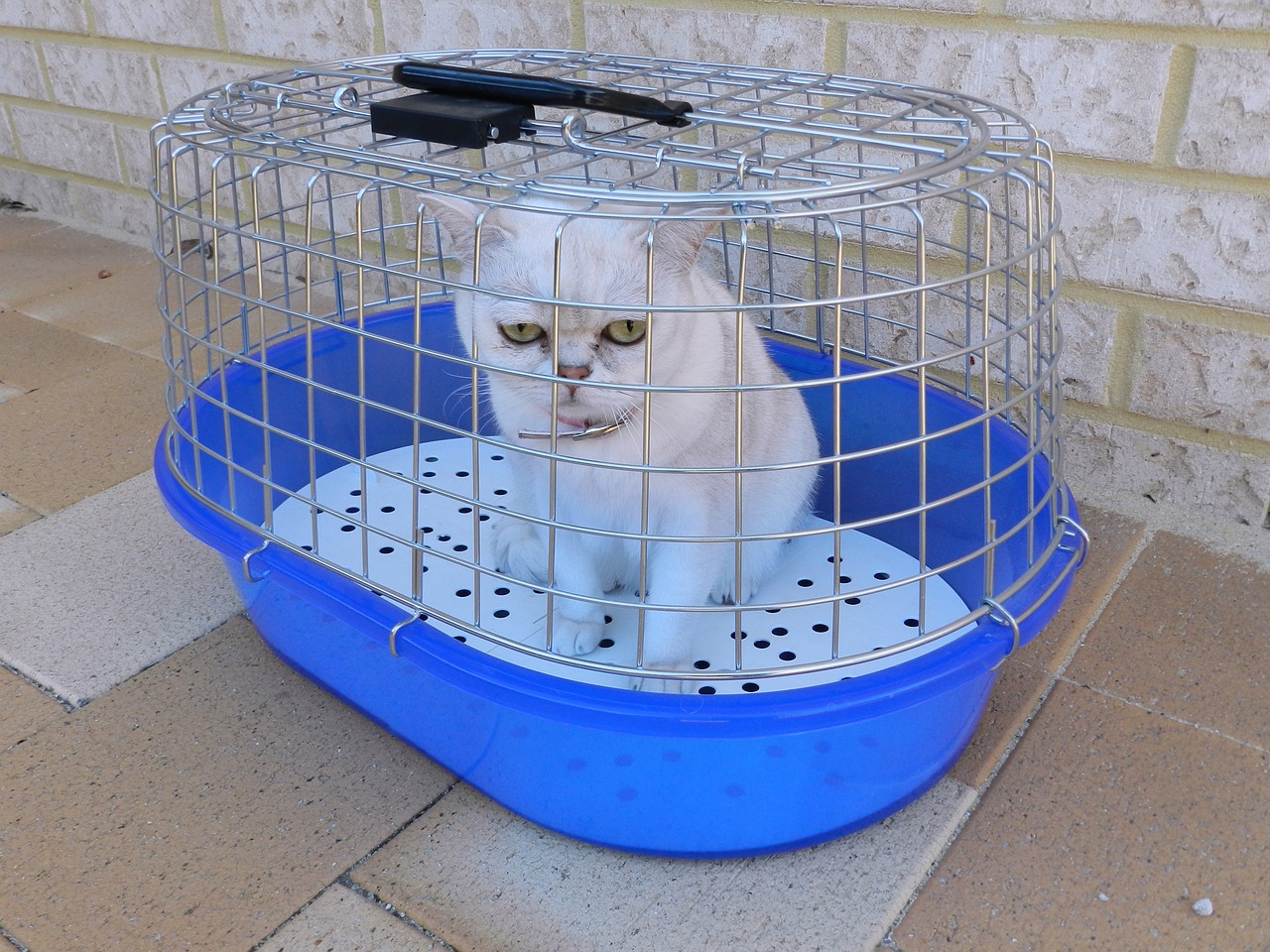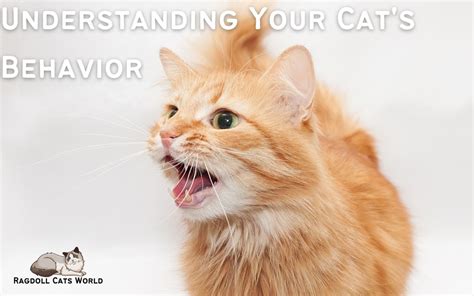Explore the essential differences between indoor and outdoor cats, the benefits of indoor living, and how to create a safe environment for your feline friend.When it comes to feline companions, the age-old debate of indoor versus outdoor living remains a hot topic among cat owners. Each lifestyle offers distinct advantages and challenges, shaping not only the well-being of your cat but also your peace of mind. Understanding the unique needs of indoor and outdoor cats is vital for making an informed decision that aligns with your furry friend’s personality and your household environment. In this article, we’ll explore the benefits of keeping your cat indoors for a longer life, delve into the risks associated with outdoor adventures, and provide tips on creating an enriching indoor environment. Whether you’re a seasoned cat owner or a newcomer eager to provide the best for your whiskered friend, our comprehensive guide will help illuminate the path towards the right feline lifestyle for your beloved pet.
Understanding The Unique Needs Of Indoor Vs Outdoor Cats
When considering the indoor vs outdoor cats debate, it’s essential to recognize the distinct needs and behaviors of each lifestyle. Indoor cats often rely on their owners for stimulation, exercise, and mental engagement, while outdoor cats naturally adapt to a more dynamic environment.
| Need | Indoor Cats | Outdoor Cats |
|---|---|---|
| Physical Exercise | Requires interactive toys and play sessions | Engages in natural hunting and exploration |
| Mental Stimulation | Needs puzzle feeders and climbing spaces | Stimulated by varied environments and prey |
| Social Interaction | Thrives on human companionship | May socialize with other cats and animals |
| Safety | Protected from predators and traffic | Exposed to potential dangers and diseases |
| Dietary Needs | Controlled feeding schedule | Forages but should have a balanced diet provided |
Understanding these differences is crucial for providing the appropriate care for your cat, whether you choose to keep them indoors or allow them outdoor access. Each cat’s temperament and lifestyle preferences should guide your decision, as their happiness and well-being are ultimately what matters the most.
Benefits Of Keeping Your Cat Indoors For A Longer Life
When considering the indoor vs outdoor cats debate, one of the most compelling arguments for keeping your cat indoors is the significant benefits to their health and longevity. Indoor cats tend to live longer, healthier lives compared to their outdoor counterparts, and several factors contribute to this advantage.
First and foremost, indoor cats are protected from various dangers that outdoor cats face. For instance, they are less exposed to traffic accidents, predatory animals, and diseases that can be contracted from wild animals or other outdoor cats. Additionally, indoor cats are safeguarded from harsh weather conditions, minimizing the risk of frostbite in winter or overheating in summer.
Furthermore, indoor cats are less likely to encounter parasites such as fleas, ticks, or worms, which are commonly found outdoors. Regular veterinary check-ups combined with a controlled indoor environment can help ensure your cat remains in peak health.
Another benefit of keeping your cat indoors is the reduction of aggressive behaviors. Outdoor cats often have to establish territory and may engage in fights with other animals, which can lead to injuries or serious health issues. By providing a secure indoor space, you can create a stress-free environment where your cat can thrive.
Indoor cats can develop closer bonds with their owners. By spending more time together, they are more likely to receive engaging social interactions and play, which can positively impact their mental well-being.
The numerous advantages of having indoor cats not only contribute to a longer lifespan but also enhance their overall quality of life. When weighing the indoor vs outdoor cats consideration, the protection, health benefits, and enhanced owner-cat relationships emphasize the importance of keeping your feline friend indoors.
Exploring The Risks Associated With Outdoor Cats
While many believe that allowing cats to explore the outdoors enhances their quality of life, this freedom comes with significant risks that every cat owner should consider. Below are some of the key dangers faced by indoor vs outdoor cats.
| Risk Factor | Description |
|---|---|
| Road Traffic | Outdoor cats are at risk of accidents involving vehicles, which can result in serious injury or death. |
| Predators | Cats that roam outside can become targets for larger predators, such as coyotes, dogs, or birds of prey. |
| Diseases | Outdoor cats are more susceptible to contagious diseases like feline leukemia, rabies, and upper respiratory infections. |
| Parasites | Outdoor environments expose cats to fleas, ticks, and intestinal worms, which can affect their health and comfort. |
| Injuries | Outdoor cats may engage in fights with other animals, leading to injuries that could require veterinary care. |
| Escape Risks | Cats can easily wander off and become lost, making it difficult for owners to locate them. |
Considering these risks is essential when deciding on the best lifestyle for your pet. Generally, the danger to health and safety can significantly reduce the appeal of allowing cats to roam freely outdoors. Opting for a safer, controlled environment can help ensure a longer and healthier life for your cat.
How To Create The Ideal Indoor Environment For Your Cat
Creating the perfect indoor sanctuary for your cat is essential to ensure their well-being and happiness. A well-designed space not only caters to their physical needs but also supports their mental stimulation. Here are some key elements to consider when setting up an indoor environment for your feline friend:
- Space for Exploration: Cats are natural explorers. Ensure your home has ample space for them to roam. Consider using cat trees or shelves that allow them to climb and survey their surroundings.
- Interactive Toys: Invest in a variety of toys that engage your cat’s hunting instincts, such as feather wands, laser pointers, or puzzle toys that challenge their intellect.
- Safe Hiding Spots: Cats love to hide. Provide cozy nooks, cat caves, or blankets they can burrow into for a sense of security and privacy.
- Window Perches: Installing window perches can give indoor cats the opportunity to observe the outside world, satisfying their curiosity while keeping them safe.
- Scratching Posts: Provide scratching posts or pads to help your cat maintain their claws and prevent them from scratching furniture.
- Consistent Routine: Cats thrive on routine. Try to maintain regular feeding times and play sessions, which can help reduce anxiety.
- Environmental Enrichment: Rotate toys and introduce new items to keep your cat’s environment stimulating. This prevents boredom and encourages active play.
- Litter Box Accessibility: Ensure that litter boxes are easily accessible and placed in quiet areas. Regular cleaning is essential to maintain hygiene.
- Safe Plants: If you enjoy having plants indoors, ensure that they are non-toxic to cats. Several plants can be dangerous if ingested.
- Regular Vet Check-Ups: Regular veterinary care is crucial for the overall health of your indoor cat. Ensure they receive vaccinations and preventive treatments.
By focusing on these elements, you can create an enriching indoor environment that helps address the unique needs of your cat, setting the stage for a happy, healthy life. Considering the contrast and discussions around indoor vs outdoor cats, it’s clear that the right indoor setup is key in providing a fulfilling lifestyle for our feline companions.
Deciding Between Indoor Vs Outdoor Cats: Factors To Consider
When contemplating whether to adopt an indoor vs outdoor cats lifestyle for your feline friend, several factors come into play. Each option presents unique advantages and challenges, so it’s essential to evaluate them in the context of your personal circumstances. Here are some key aspects to consider:
| Factor | Indoor Cats | Outdoor Cats |
|---|---|---|
| Safety | Safer from traffic, predators, and diseases. | Exposed to potential dangers and health risks. |
| Physical Health | Less chance of injury or illness; controlled environment. | More opportunities for exercise and natural behaviors. |
| Mental Stimulation | Requires enrichment to prevent boredom; toys and interactive play are essential. | Natural stimuli; exploration and hunting instincts are engaged. |
| Longevity | Typically have longer lifespans. | May face health challenges that can shorten life. |
| Owner Commitment | Requires active participation in play and mental stimulation. | Less direct interaction needed but supervision is important. |
Additionally, consider your living situation. If you live in a busy area or have access to a safe yard or garden, that can influence your decision significantly. Cats are naturally curious creatures, and their need for exploration balances against the risks involved.
Moreover, evaluate whether you can commit sufficient time to engaging indoor activities if you decide to keep an indoor vs outdoor cats environment. Ultimately, the decision should focus on what best suits your cat’s wellbeing, as well as your lifestyle and preferences.
Frequently Asked Questions
What are the main differences between indoor and outdoor cats?
Indoor cats generally have a safer and controlled environment, while outdoor cats can enjoy more freedom and natural behaviors but face risks like traffic and predators.
What are the benefits of keeping a cat indoors?
Indoor cats are typically safer from accidents, diseases, and predation. They can also live longer due to reduced exposure to outside dangers.
What advantages do outdoor cats have?
Outdoor cats can engage in natural hunting behaviors, which can provide mental stimulation and exercise, helping to keep them physically fit.
How can I transition my indoor cat to an outdoor lifestyle?
Start by allowing your cat outside in a controlled manner, such as on a leash or in a secured area, ensuring they are comfortable and gradually acclimating them to the outdoors.
Are there any health risks associated with outdoor cats?
Yes, outdoor cats are at risk for various health issues, including injuries from fights, exposure to diseases, parasites, and accidents caused by vehicles.
Can indoor cats still enjoy outdoor experiences?
Absolutely! Indoor cats can benefit from supervised outdoor time in enclosed spaces, using balconies, or exploring the yard under supervision.
How do I decide what is best for my cat’s lifestyle?
Consider your cat’s personality, health, safety, and your living environment. Assess their playfulness and curiosity to determine if they would thrive indoors or enjoy outdoor exploration.











